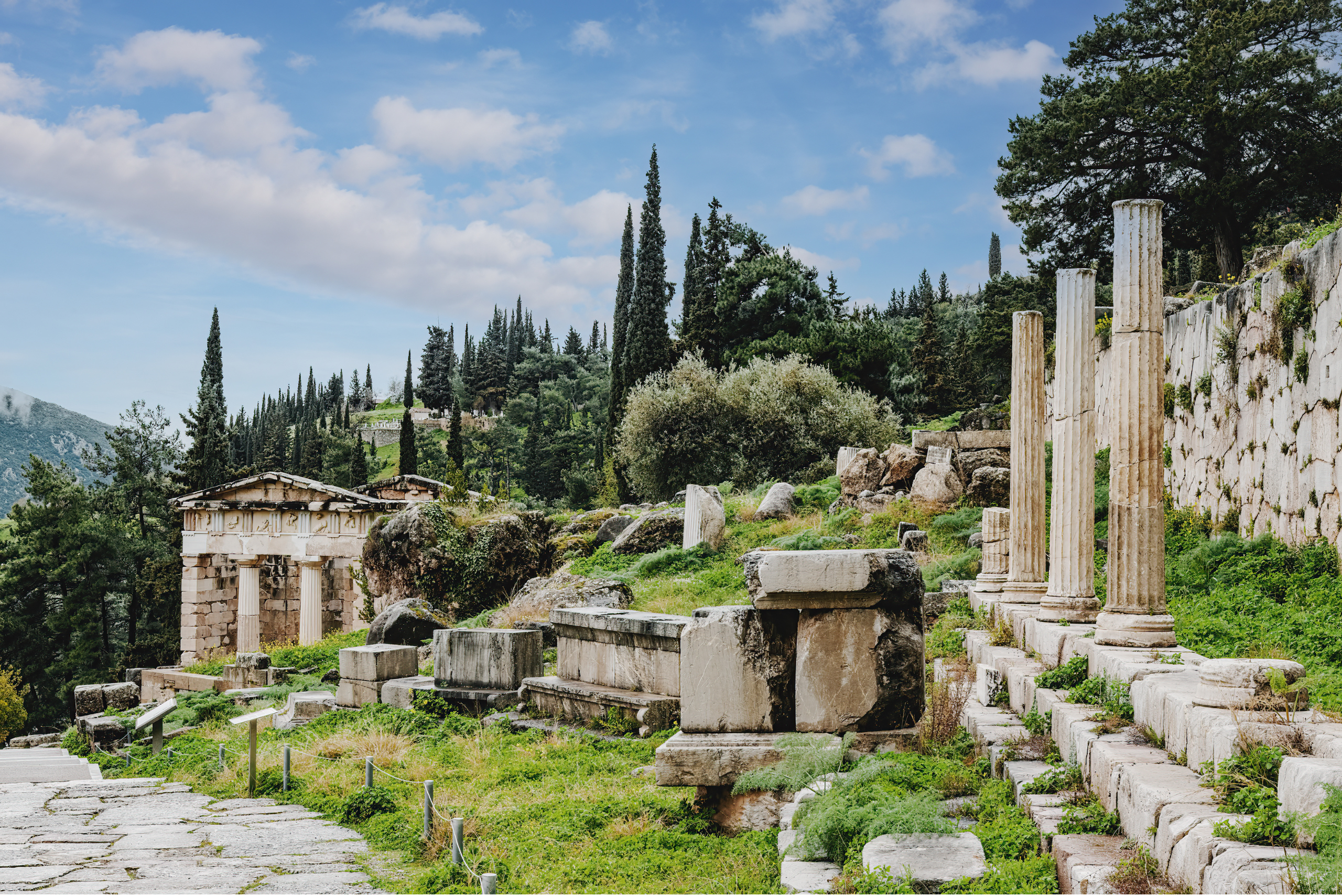This is the third of a three-part series about Josef Pieper’s Only the Lover Sings: Art and Contemplation. You can read the previous episodes here and here.
In Greek mythology, the Muses were nine heavenly sisters who embodied artistic inspiration. If you’ve been to the Garden District in New Orleans, you may recognize the nine Muses from street names: Calliope (Muse of Epic Poetry), Clio (Muse of History), Erato (Muse of Love Poetry and Lyric Poetry), Euterpe (Muse of Music), Melpomene (Muse of Tragedy), Polyhymnia (Muse of Sacred Poetry), Terpsichore (Muse of Dance), Thalia (Muse of Comedy), and Urania (Muse of Astronomy).
In Only the Lover Sings, Josef Pieper recounts a few different traditions surrounding the Muses’ origin. As far back as the Greek poet Hesiod (8th-Century BC), the Muses are described as the nine daughters of Mnemosyne, the Greek goddess of memory. Pindar¹ (5th-Century BC), gives a different version of the Muses’ origins: when Zeus ordered the primordial Chaos into the Cosmos, he asked the other gods if anything was missing. They answered that the only thing missing were appropriate voices to sing the praises of creation. Zeus created the Muses to be those voices—or, rather, to inspire those voices.
The connection between memory and the Muses’ inspiration may not seem self-evident. When we describe an idea or a piece of art as “inspired,” we typically mean it is original and surprising. An “inspired” idea feels as if it came out of nowhere. Memory, by contrast, always comes from somewhere—namely, the past.
Pieper doesn’t have a great deal to say about originality in this essay. What he does talk about, however, is the need for art to invite the recipient into a different reality. And that phenomenon—being ushered into another reality—in many ways fulfills what we crave when we crave originality.
The one who remembers and the one who is helped to remember both direct their attention away from the “here and now” and the mere eye-catching surface. And yet, on the other hand, the reality they now behold cannot be something totally new either, something they have never perceived before… So, the one who remembers as well as the one who is helped to remember, though not perceiving things totally alien to him, nevertheless beholds a “different” reality, “distinct” from his daily and direct experience.
This alternate reality that the Muses bring to our attention can be easily ignored and lost, and yet, if we wish to retain our humanity, we must not forget this other reality. The arts, like religion, keep before us the truth that there is more to life than the here and now, the market-driven, the workaday. Pieper writes,
Here we somehow sense the artist’s inner relationship to the priest, who is called, above all, to keep alive the remembrance of a face that our intuition just barely perceives behind all immediate and tangible reality.
If Memory is the mother of the Muses, it is worth asking what, exactly, the Muses (that is, the Arts) are supposed to bring to mind. Earlier I mentioned Pindar’s story, in which the Muses came into being so that there would be voices to praise the created order. It is important to note that the poet was talking about the created order in its unfallen state (even in classical mythology there was a Fall, from the Age of Gold to the Age of Silver, and ultimately to the Age of Iron in which we find ourselves, an age of toil and misery and violence).
A couple of weeks ago, in Part 1 of this series, I wrote about some connections between the ability to do meaningful work and the ability to celebrate a feast. Pieper returns to this idea near the end of Only the Lover Sings. Both the fine arts and festivals “build on a loving acceptance of the world and of human existence.”
How do you lovingly accept the world and human existence, knowing that the world is broken and that human beings broke it? It comes down, I think, to understanding and acknowledging that while the brokenness and sin are true, they aren’t the truest things. In his song “All Things New,” Andrew Peterson summarizes history thus:
The world was good.
The world is fallen.
The world will be redeemed.
The fallenness is sandwiched between goodness and redemption. But we live in the sandwich, so we need reminding. As Pieper writes, every feast is “at the same time the remembrance of primordial bliss and the anticipation of future fulfillment.” He goes further: “All that exists carries somehow the imprint of ‘paradise,’ and all authentic fine arts, offspring of the Muses, know how to make this truth apparent.”
It is easy to forget. The Muses, those daughters of memory, remind us of things that are truer than the status quo.








